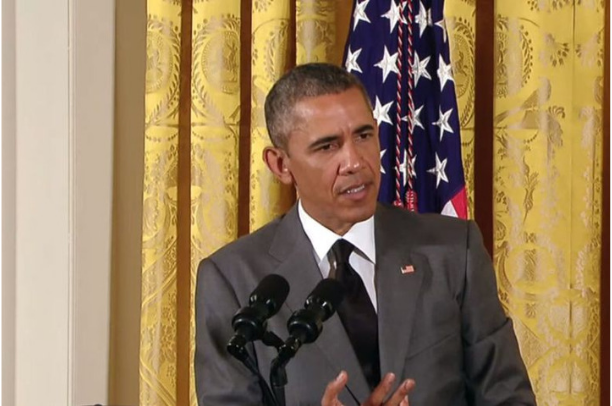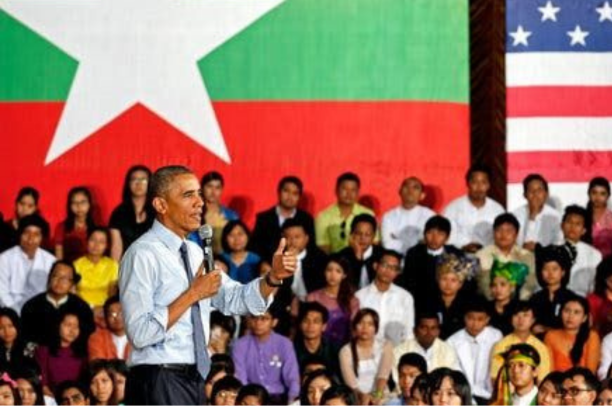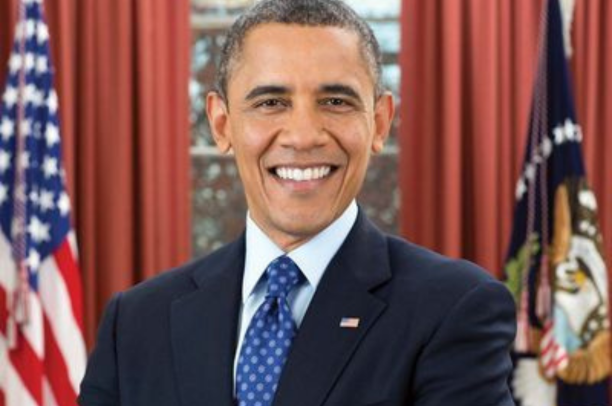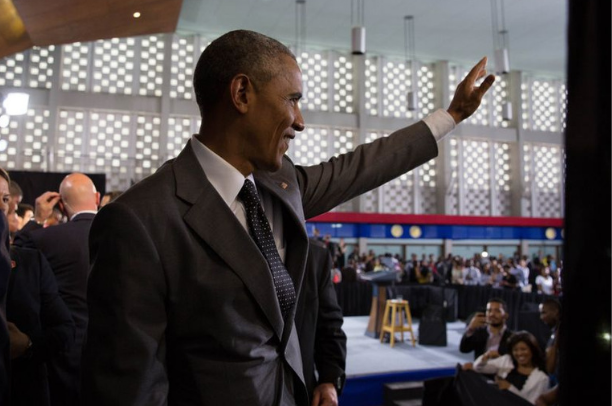The Vatican And European Imperialism – Moving Beyond The Shadows Of Colonialism In Africa

I recently read a publication titled “Vatican condemns colonial abuses in Church history,” published by The Brussels Times on March 31, 2023. As I reflect on it this Sunday, I find myself pondering whether many African Christians truly consider the role of the European Church in colonialism and the lasting implications of these historical biases.
Want to learn more about storytelling? Start by downloading the first chapter of The Storytelling Mastery.
The colonial abuses, often sanctioned by the Church, have significantly contributed to the identity crises and confusion that many Africans still face today. But what does all these really mean in the lives of Africans and the African diaspora today? Well, that is what we are talking about in this long article. So, enjoy the ready.
The Doctrine of Discovery: A Tool of Imperialism
The Doctrine of Discovery, established through a series of papal bulls in the 15th century was as a legal and moral justification for European colonial powers to claim lands inhabited by non-Christians. Pope Nicholas V’s decree in 1452 and Pope Alexander VI’s 1493 edict effectively sanctioned the enslavement and exploitation of indigenous populations, including those in Africa and the Americas.
“The non-European, non-Christian world” According to a publication, The International Law of Colonialism in East Africa: Germany, England, and the Doctrine of Discovery, “was colonized under international law that is known today as the Doctrine of Discovery. This common-law international Doctrine was codified into European international law at the Berlin Conference of 1884–85 and in the Berlin Act of 1885 specifically to partition and colonize Africa.”
This doctrine not only facilitated the transatlantic slave trade but also laid the groundwork for centuries of oppression and exploitation.
See also Religious Endorsement Of Slavery As A Legitimized Business Both In Islam And Christianity
Now you must be wondering if there is any real effect on that. Well, consider these three ways the Doctrine of Discovery was applied in Africa as a tool of imperialism:
Justification for Land Seizure and Colonization:
The Doctrine of Discovery provided European powers with a theological and legal rationale to claim territories in Africa as their own, despite the presence of established societies and governance systems.
This led to the widespread appropriation of African lands by European nations during the “Scramble for Africa” in the late 19th century.
The Berlin Conference of 1884-1885, where European powers divided Africa into territories without any African representation, was a direct outcome of the imperialist mindset supported by the Doctrine of Discovery.
Two years ago, on the Obehi Podcast, we conducted an in-depth interview with Dr. Lesley Marisa, who discussed the looting of African resources through a combination of lawfare and warfare. She specifically highlighted the case of the British displacement of the Zimbabwean people from their land. You can listen to the full episode on the podcast: Dr Lesley Marisa on Looting African Resources Through The Combination Of Lawfare And Warfare.
Facilitation of the Transatlantic Slave Trade:
The Doctrine of Discovery endorsed the enslavement of non-Christian peoples, which European powers used to justify the capture, trade, and exploitation of millions of Africans.
This doctrine provided a moral and legal basis for the transatlantic slave trade, wherein Africans were forcibly taken from their homeland, sold into slavery, and subjected to inhumane conditions and brutal labor in the Americas and Europe.
This had a devastating impact on African societies, economies, and cultures. There are even more. What about the indigenous cultures and religions?
Suppression of Indigenous Cultures and Religions:
The Doctrine of Discovery supported the forced conversion of African populations to Christianity, often accompanied by the destruction of indigenous cultural and religious practices.
European missionaries, backed by colonial authorities, established missions and schools that aimed to convert Africans and replace traditional beliefs with European Christian values.
See also Racism And Slavery: How The Hamitic Theory Began To Crumble
This cultural imperialism eroded African identities and contributed to the long-term confusion and loss of cultural heritage among many African communities. Now let’s expand more on that, considering colonialism.
Colonialism and the African Experience
European colonization in Africa was marked by brutality and systematic exploitation. Colonial powers, driven by the desire for resources and economic dominance, carved up the continent with little regard for existing cultural and social structures.
In an Aljazeera article, titled “Moral evil, economic good’: Whitewashing the sins of colonialism,” historian, professor, and decolonial theorist, Sabelo J. Ndlovu-Gatsheni talked about how war, violence, and extractives have defined the legacy of empire in Africa.
He warns that recent efforts to highlight the ‘ethical’ contributions of colonialism risk rewriting history and undermining progress.
This “Scramble for Africa” in the late 19th century saw countries like Britain, France, Belgium, and Germany impose arbitrary borders, leading to the fragmentation of ethnic groups and communities.
For instance, the Berlin Conference of 1884-1885, convened by European powers, divided Africa into territories without any African representation. The repercussions of these actions are still felt today, contributing to conflicts and political instability in various regions.
The imposition of foreign cultural norms and economic systems disrupted traditional ways of life, creating a lasting impact on African societies.
That’s not even the real challenge. The true issue lies with the unrepentant European imperialists—now rebranded—who persist in enforcing the decisions of the Berlin Conference of 1884-1885.
They utilize their security apparatus, religious agents, and economic and political power to ensure that only African leaders who align with their agenda remain in positions of authority. Those with opposing views are systematically excluded from accessing power within African institutions.
This situation is often justified under the guise of democracy, but the reality is that what we have in Africa falls far short of genuine democratic governance. There are dozens of interview on the Obehi Podcast to help you understand this, including hundreds of articles published on AClasses Academy on the same topic.
Meanwhile, here are three key negative effects of the Berlin Conference of 1884-1885 on African geopolitics and economy:
Arbitrary Borders Leading to Ethnic Conflicts:
The Berlin Conference resulted in the division of Africa into territories without regard to existing ethnic, cultural, or linguistic boundaries.
This arbitrary partitioning grouped together diverse ethnic groups that often had historical rivalries, while also splitting unified groups across different colonies.
This has led to persistent ethnic tensions and conflicts within African nations, as seen in countries like Nigeria, Sudan, and Rwanda. These conflicts have hindered political stability and development in many parts of Africa.
Economic Exploitation and Underdevelopment:
The primary goal of the European powers at the Berlin Conference was to exploit Africa’s vast natural resources. The colonial economic systems were designed to extract resources and export them to Europe, leaving African economies dependent on a few primary commodities.
You might also like Africans Must Learn That It’s “ALL ABOUT THE STRATEGY” – Selena Carty
This exploitation prevented the development of diversified economies and robust industrial bases in African nations.
The legacy of this economic structure has contributed to ongoing economic challenges, including poverty, lack of infrastructure, and dependency on foreign aid and investments. And remember that none of this is a mistake.
Disruption of Traditional Societies and Governance:
The imposition of European colonial rule disrupted traditional African governance systems and social structures.
Colonial administrations often replaced or undermined indigenous leadership, imposing foreign legal and administrative systems that were alien to African societies.
This erosion of traditional authority and governance mechanisms weakened social cohesion and created governance challenges that continue to affect African countries.
The legacy of these disruptions includes political instability, governance crises, and challenges in establishing effective and inclusive political institutions.
The Role of the European Church in Colonization
Many Africans don’t often think about this but it’s crucial to the entire conversation. The European Church played a significant role in the colonial project. Missionaries often accompanied colonial expeditions, aiming to convert indigenous populations to Christianity.
While some missionaries genuinely sought to help, their efforts were frequently entwined with the colonial agenda. Forced conversions, cultural suppression, and the destruction of indigenous belief systems were common practices.
In Canada, for example, the Catholic Church operated residential schools where indigenous children were forcibly enrolled. These schools aimed to assimilate children by eradicating their native cultures and languages.
Similar strategies were employed in African colonies, leading to a profound identity crisis among many Africans. The Church’s involvement in these abuses has left deep scars, contributing to the confusion and loss of cultural heritage that many Africans experience today.
Now, here are three key negative effects of the role of the European Church in colonization on the present-day identity crises in Africa and the destruction of African spirituality:
Erosion of Indigenous Spiritual Practices and Beliefs:
The European Church played a central role in promoting Christianity at the expense of indigenous African spiritual practices and beliefs. Missionaries often denigrated traditional religions, labeling them as pagan or devilish, and systematically worked to replace them with Christianity.
See also The Concept Of Ehi and Spirituality Among the Esan People of Nigeria
This led to the widespread abandonment of indigenous spiritual practices, rituals, and beliefs, creating a loss of cultural and spiritual identity among many African communities.
The suppression of these practices has contributed to a spiritual vacuum and identity crises for many Africans who struggle to reconnect with their ancestral heritage.
Imposition of Western Cultural Norms and Values:
Alongside the spread of Christianity, European missionaries and colonial authorities imposed Western cultural norms and values, often viewing African customs and social structures as inferior or backward.
This cultural imperialism led to the devaluation of African traditions, languages, and societal norms. As a result, many Africans adopted Western lifestyles and values, leading to a disconnection from their own cultural roots.
This cultural dissonance has fostered identity crises, as individuals and communities grapple with balancing their African heritage with the adopted Western influences.
Division and Fragmentation of African Societies:
The European Church’s involvement in colonization often exacerbated divisions within African societies. By aligning with colonial authorities, the Church played a role in the creation of new social hierarchies and divisions based on religious affiliations.
Converts to Christianity were often given preferential treatment, creating rifts between Christian and non-Christian communities. This religious division, compounded by the broader colonial strategy of divide and rule, has had lasting effects on African social cohesion and unity.
See also Ifa Theology And African Spirituality: Exploring the Virtues of Life and Purpose
The fragmentation of societies along religious lines continues to influence contemporary identity struggles and inter-group relations in many African countries.
The Lingering Effects of Colonialism on African Geopolitics and Economy
Economic exploitation during the colonial period has had lasting effects on Africa’s development. Colonial powers extracted vast amounts of resources, leaving African economies dependent on the export of raw materials. This dependency hindered industrialization and economic diversification.
Today, many African countries continue to struggle with economic instability and debt, remnants of a colonial past that prioritized resource extraction over sustainable development.
Well, consider also that “Many African countries, upon earning their independence, were left with imposed colonial debts transferred to newly-established independent governments.” That is from an article on Colonial debt and reparations, published in The Ecologist.
The article added that “During the Cold War loans enticed African countries to steer away from socialist policies, and rewarded corrupt African governments for creating welcoming environments for foreign investment in place of focusing on the well-being of citizens.”
Geopolitically, the artificial borders drawn by colonial powers have led to numerous conflicts.
Countries like Nigeria, Sudan, and the Democratic Republic of Congo have experienced prolonged conflicts fueled by ethnic tensions and disputes over resources—issues rooted in colonial-era decisions.
The Biafran War in Nigeria (1967 to 1970) and the Darfur conflict in Sudan are stark examples of how colonial legacies continue to shape modern African geopolitics.
Culturally, the imposition of foreign values and norms has contributed to an identity crisis among many Africans. The suppression of indigenous languages, traditions, and belief systems has led to a disconnection from cultural roots.
This cultural confusion is evident in the struggle to balance traditional practices with modern influences. As for the solution, consider the following:
Owning Our Stories: A Path to Empowerment
You need to reclaim your history as an African. Reclaiming and owning your story is a powerful tool for empowerment. Storytelling allows you to reshape perceptions, celebrate resilience, and assert your identity.
As a creative entrepreneur, leveraging your unique narrative can set you apart in the global market, where authenticity and originality are highly valued.
See also The Decolonization of Mindset among Africans – Dr. Kiatezua Lubanzadio Luyaluka
Take, for example, the success of African diaspora creatives like Chimamanda Ngozi Adichie, whose storytelling captures the complexities of African identity and experience. Her work not only resonates with global audiences but also challenges stereotypes and fosters a deeper understanding of African cultures.
Are you looking for how to learn and improve yourself? Think of AClasses Academy which is dedicated to helping you harness your narrative power.
Proposing a Better Way Forward
To overcome historical injustices and build a thriving future, it is crucial to embrace strategies that promote education, collaboration, and self-empowerment. Here are some steps you can take:
- Education and Skill Development: Engage in continuous learning through platforms like AClasses Academy to enhance your business and creative skills. Focus on courses that teach effective storytelling, business management, and digital marketing to strengthen your entrepreneurial toolkit.
- Collaboration and Networking: Connect with other creatives and entrepreneurs to share experiences, resources, and opportunities. Leverage social media and online platforms to build a community around your work and expand your reach.
- Cultural Reclamation and Innovation: Embrace and celebrate your cultural heritage in your creative endeavors. Authenticity can be a significant differentiator in the market. Innovate by blending traditional elements with contemporary trends to create unique products and services.
- Economic Empowerment: Explore opportunities for economic empowerment, such as participating in global trade and investment networks. Advocate for policies that support fair trade, sustainable development, and economic justice for African communities.
Conclusion on Moving Beyond The Shadows Of Colonialism In Africa
In conclusion, the enduring legacy of colonialism, fueled by the complicity of both European powers and their institutions, continues to shape the geopolitical and cultural landscape of Africa.
See also Decolonizing the African Curriculum: Empowering Voices, Challenging Biases
As we reflect on the implications of these historical injustices, it’s crucial for African leaders and communities to reclaim their narratives and assert their identities.
By confronting the past and embracing their rich heritage, Africans can pave the way for a future defined by authenticity, empowerment, and true democratic governance. Only then can they break free from the shackles of history and build a more equitable and prosperous continent.
Want to learn more about storytelling? Start by downloading the first chapter of The Storytelling Mastery.





